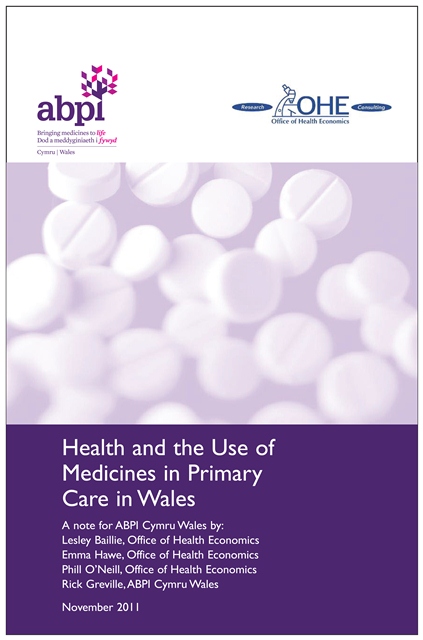Sign up to our newsletter Subscribe
Understanding societal preferences for priority by disease severity in England & Wales

Sign up to our newsletter Subscribe

In this report commissioned by the ABPI in Wales, OHE Consulting examines the use of medicines in primary care in Wales since 2000 compared to the other countries of the UK In this report commissioned by the ABPI in Wales,…

In this report commissioned by the ABPI in Wales, OHE Consulting examines the use of medicines in primary care in Wales since 2000 compared to the other countries of the UK

In this report commissioned by the ABPI in Wales, OHE Consulting examines the use of medicines in primary care in Wales since 2000 compared to the other countries of the UK. Key findings include a greater number of prescriptions per person in Wales and a more rapid increase in the number of prescriptions per person. This is linked to Wales’s more elderly population and higher rates of chronic illnesses. Despite the increase in volume of prescriptions, however, spending on medicines in Wales has decreased and at a faster rate than elsewhere in the UK. This is explained in large part by a more rapid increase in Wales in prescribing of lower cost medicines, including generics.
The report also shows that overall NHS spending in Wales has been growing faster than spending on medicines. Other recent research, referenced in the report, has suggested that Health Boards in Wales consistently underspend their medicines allocations, although the reasons remain unclear. At the same time, however, Wales lags behind England in the uptake of new primary and secondary care medicines that have received positive appraisals from NICE or from the All Wales Medicine Strategy Group. The report suggests that the increasing availability of generic medicines over the next few years could provide enough savings to help increase the timely uptake of recommended medicines.
For further information, please contact Lesley Baillie or Phill O’Neill at OHE.
Download Baillie, L., Hawe, E., O’Neill, P. and Greville, R. (2011) Health and the use of medicines in primary care in Wales. London: Office of Health Economics.
An error has occurred, please try again later.
This website uses cookies so that we can provide you with the best user experience possible. Cookie information is stored in your browser and performs functions such as recognising you when you return to our website and helping our team to understand which sections of the website you find most interesting and useful.
Strictly Necessary Cookie should be enabled at all times so that we can save your preferences for cookie settings.
If you disable this cookie, we will not be able to save your preferences. This means that every time you visit this website you will need to enable or disable cookies again.
This website uses Google Analytics to collect anonymous information such as the number of visitors to the site, and the most popular pages.
Keeping this cookie enabled helps us to improve our website.
Please enable Strictly Necessary Cookies first so that we can save your preferences!